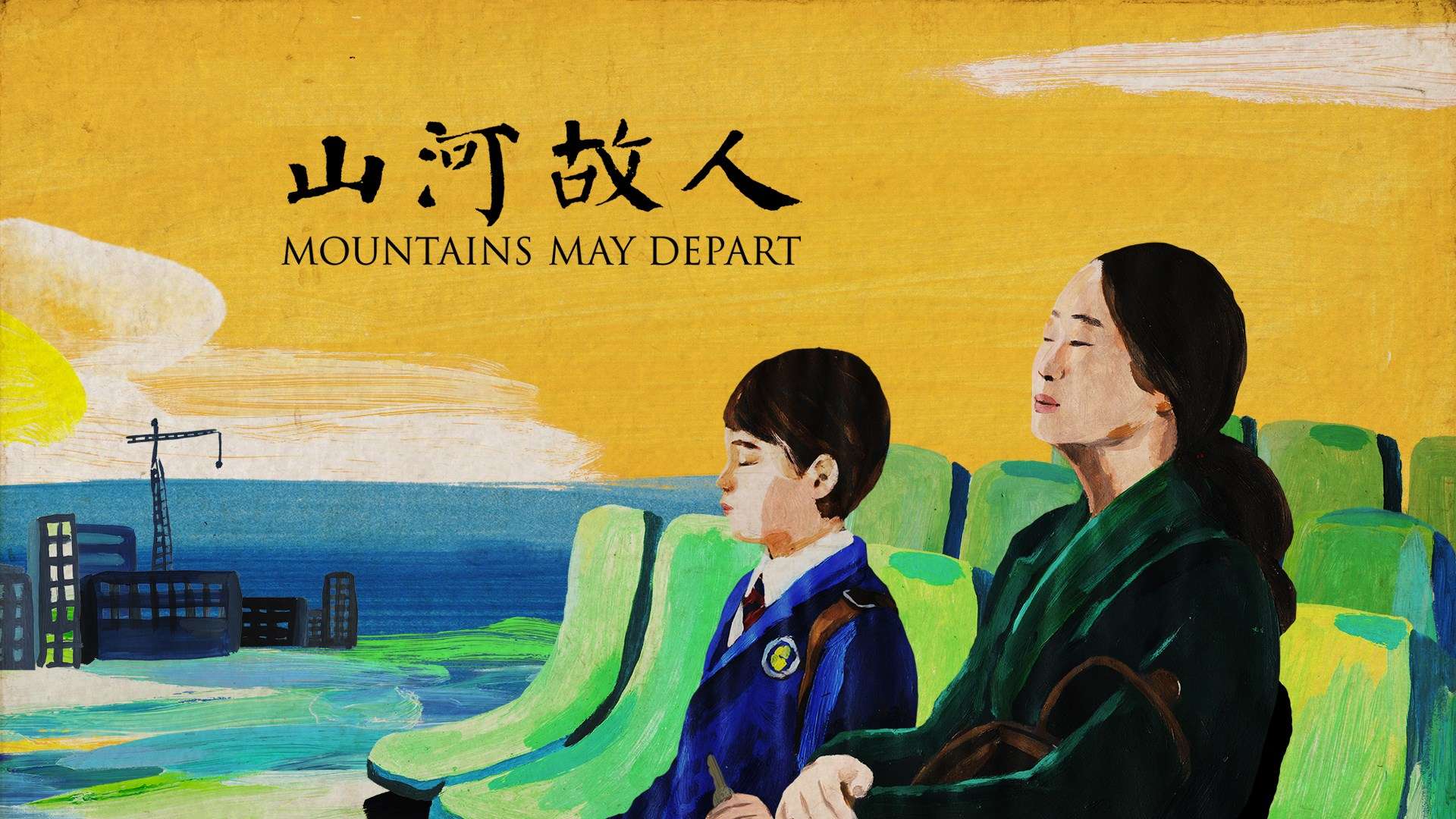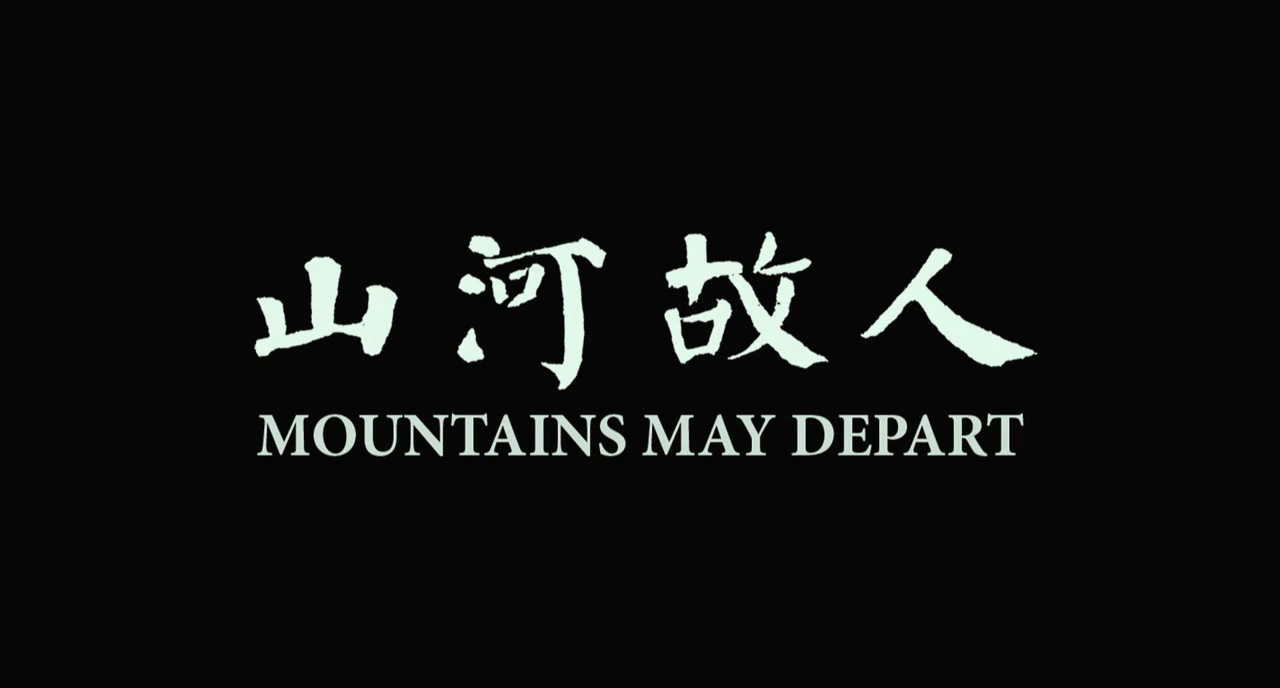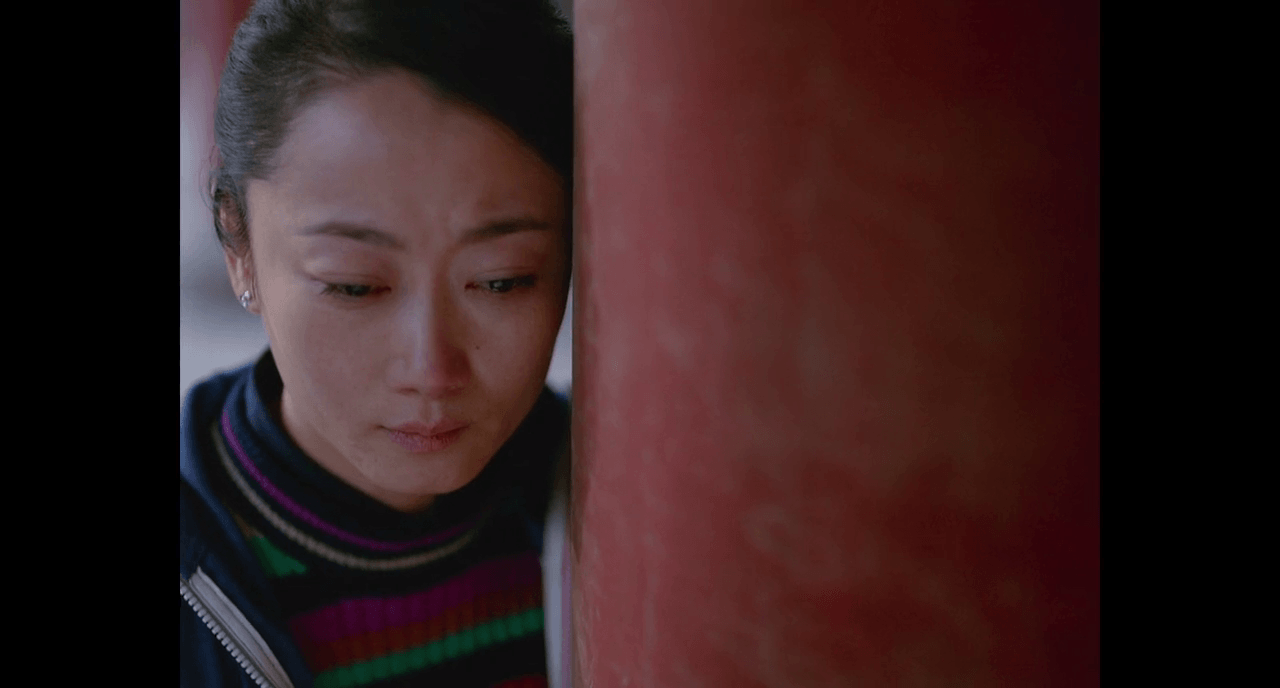“Nobody can be with you all through life. We’re fated to be apart.”
The title card in Jia Zhangke’s Mountains May Depart appears somewhere around the 45-minute mark. Not only does it instantly change the way you look at the film (with a very subtle change in the aspect ratio) but also changes your feelings towards the film. As Zhangke himself said, he wanted to make a film about feelings that are surrounded by the changing consumerism, economy and a human need for a better future. So, as we move to the next segment of Mountains May Depart, the transcending time slows down with sweetness, bitterness and bitter-sweetness intermingling together to showcase a rather convincing and thought provoking retrospect of how decisions and emotions rally over changing times and how, deep within, we are still the same people who wish to dance around shedding over sins and regrets, finding our way home.
Mountains May Depart has three times lines. The first two are entirely set-up in the changing Chinese backdrop, representing the end of the era, i.e 1999 and the year 2014 respectively. The first segment of the film deals with Tao (Zhao Tao) and her dilemma of choosing the right one. Zhangke’s approach is very clear and convincing. As we see Tao making a decision that’s procured by her thoughts for a better future and not her emotional attachment, we are also entirely convinced by her decision. While it could have come off as off-putting, melodramatic and conventional, Zhangke uses beautiful, rather subtle imagery that feels like a dream in slow-motion. Hence to take you out of the deep slumber-like feeling of melancholia, Zhangke presses fire-crackers and tingling score into your head.
The first segment of the film sees two suitors who both claim and feel suitable for Tao. While Jinsheng (Zhang Yi) is an uprising capitalist, the sweet childhood friend Liangzi (Lianlg Jin Dong) works at a coal mine and is not loaded with cash. Both of them are smitten by her vivacious nature as she strides down the lanes of China in her scooter and joyously sings, welcoming the new era. When Tao finally comes to a decision, we see Zhangke’s mastery at work. We see her hitting her head in despair to have hurt one of her suitors. We also see her dancing in a pub to her own tunes. The use of fire-crackers, oceanic waves and the over-abundance of the color red all point out to a future which is not only unsure but also full of unpredictable happenings. Zhangke uses a destroyed fallen aircraft, a caged tiger, and a few other symbolic references to replicate the unpredictability and ferocious circle time puts you through.
The second segment is full of elements of anger, despair, loss and regret. The way Zhangke explores through human nature which does things he/she had promised to never do is astonishing. His eye to capture intrinsic details flourishes through all corners and the aspect ratio widens. While his lens again fixates on Tao, her frustration and anger of not changing herself are seen all over her. We see Liangzi returning from being an immigrant worker to his homeland and when most of us expect some dramatic change of narrative, Zhangke surprises with his convincing eye of seeking out more than the average audience could grasp. Tao’s sadness enhances with the deteriorating health of her father and her estranged son whose custody is gained by her divorced husband. However, the central theme of people choosing comfort and money over their personal conflicts like love and happiness remain intact.
The third and final segment of the film is set in the year 2025, Australia. Tao’s son is all grown up but is torn from the inside. He needs google translate to communicate to his father and his freedom of expression and his feelings towards his motherland intermingle as he struggles to find a sense of clarity. He finds solace in the presence of his professor who is helping him and a few others who are at a loss of identity as they struggle with their own language. Zhangke’s sharp eye is still looking for things to explore. He wishes to convey that the oomph factor of the world has repressed all emotions in a human being. The futile nature of not being able to understand the right from the wrong and the dear from the hateful with the deep, repressed feelings overflowing and coming out all at once is what Zhangke aims for.
However, the third segment underwhelms. The much needed emotional arc in the act is outrighted with Zhangke not being able to convey them properly. The gun monologue that showcases freedom in both the lights of right and wrong works, but everything that concerns Dollar & the professot and their supposedly unconvincing love towards each other and the use of ‘English’ made me appreciate the rest of the film even more. The college professor Mia (Sylvia Chang) and her divorce with her husband does not matter to any of the elements that Zhangke wishes to convey.
Mountains May Depart is not a masterpiece but it could have been if the last episode of Zhangke’s film was as deeply moving and as emotionally involving as the rest of it. But if you are up for some fine filmmaking that not only touches you to the core but also makes you think about it, Mountains May Depart is right down your alley. It asks for optimum patience and can test your threshold a couple of times but the terrific use of Pet Shop Boy’s Go West and that final 5 minutes alone nudges down all possible flaws here.






